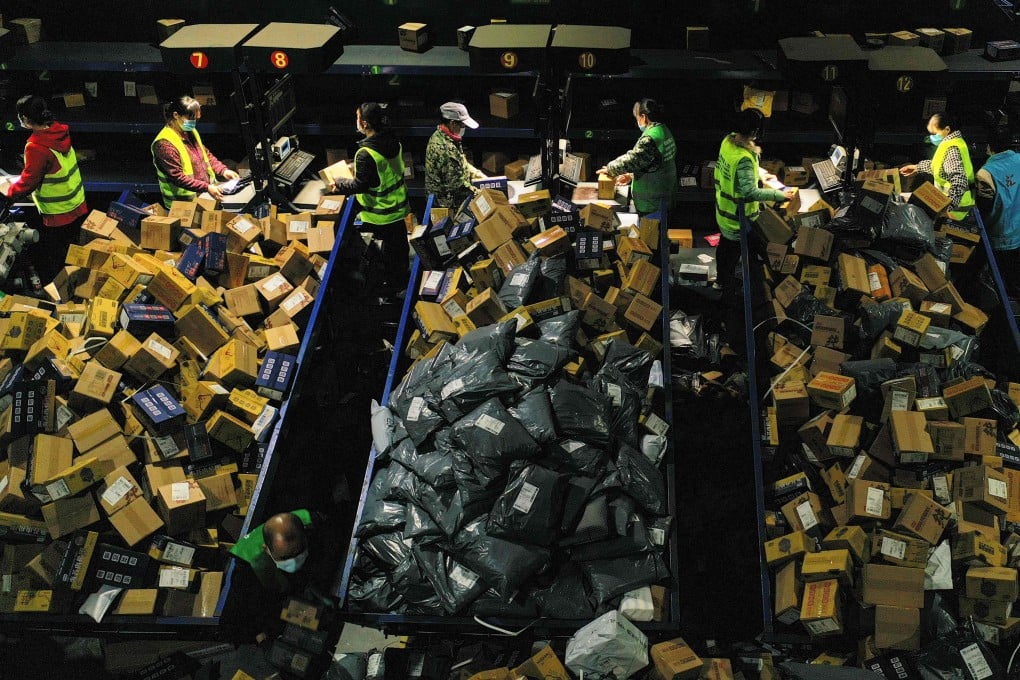China’s 150 million online shoppers, overseas suppliers fear coronavirus mail contamination threat
- Fears in China that the coronavirus can be spread on the surface of imported goods escalated this week after Beijing’s first Omicron variant case was linked to a letter from Canada
- China had a reported 158 million online shoppers buying overseas products in 2020

Fear and confusion is spreading among Chinese consumers and overseas suppliers that China’s restrictions on international mail aimed at halting the spread of the coronavirus will have a prolonged negative impact on the once-booming overseas online shopping business.
This prompted a flood of posts expressing regret and confusion from consumers on various Chinese social media platforms, with many users having already been punished for placing overseas orders.
“I just found my code had turned yellow, and I received a call saying I need to get tested three times in seven days to turn it back to green because I received an overseas package,” one Guangdong-based Weibo user said on Tuesday. “That’s the cigar I bought last month and it hasn’t been delivered yet.”
China employs a colour-based QR code system, with a green health code required to enter an office building or public facility. This allows people to move more freely than yellow or red health codes, which require compulsory testing and quarantine.
